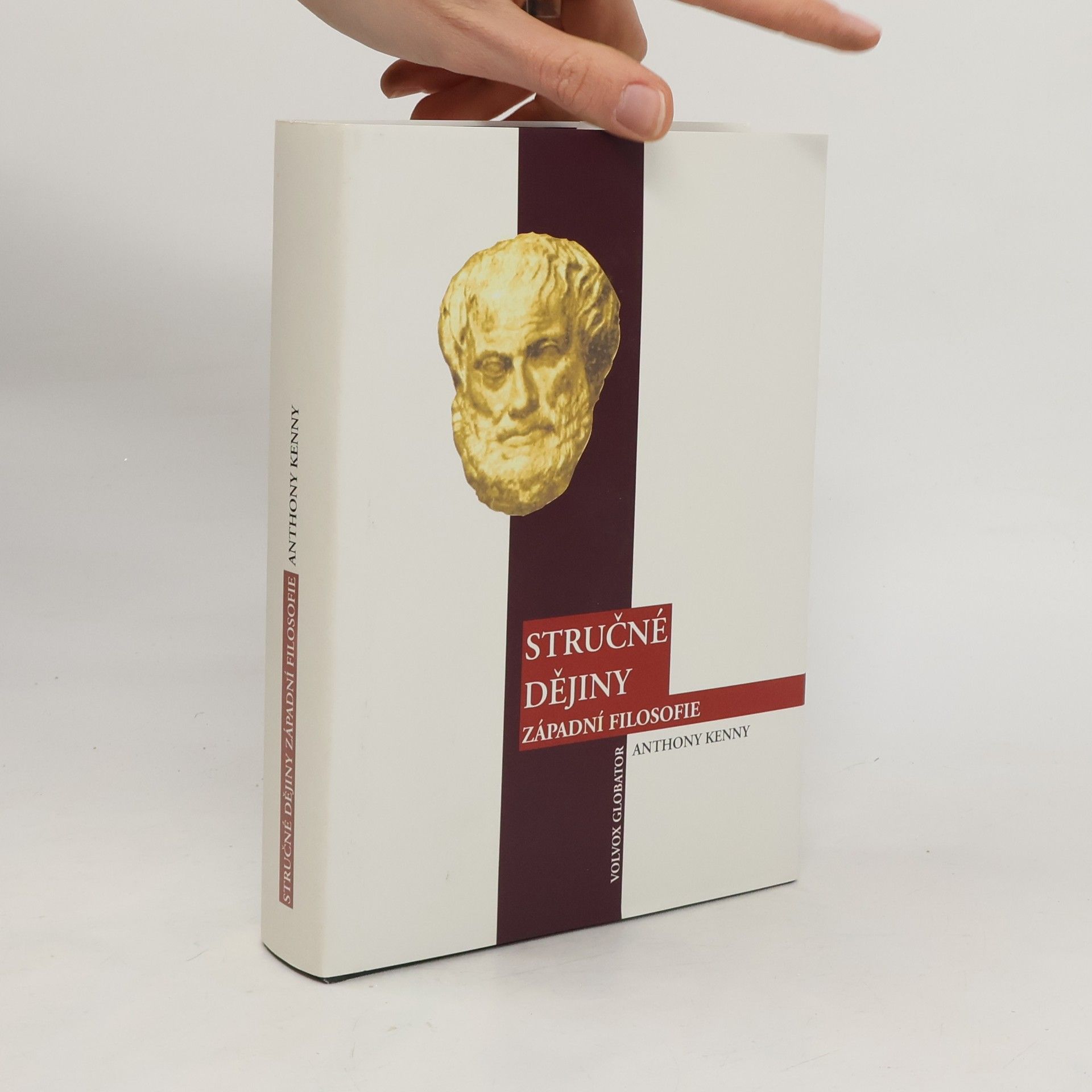Tomáš Akvinský
- 107 stránek
- 4 hodiny čtení
Monografie od jednoho z nejvýznamnějších současných představitelů analytické filosofie v Anglii.
Sir Anthony Kenny byl anglický filozof zabývající se především filozofií mysli, starověkou a středověkou filozofií, Wittgensteinovou filozofií a filozofií náboženství. Jeho práce se vyznačovala hlubokým zájmem o historické filozofické tradice a jejich relevanci pro současné myšlení. Kennyho analytický přístup a schopnost jasně artikulovat složité myšlenky z něj činí významnou postavu v akademickém světě.







Monografie od jednoho z nejvýznamnějších současných představitelů analytické filosofie v Anglii.
Eseje z filosofie náboženství. První část obsahuje přednášky na téma Víra a rozum z dubna 1982. Ve druhé části jsou zařazeny některé novější přednášky, které rozvíjejí podobná témata: – Je přirozená teologie možná? – Argument z plánu a problém zla, – John Henry Newman o ospravedlnění víry, – Anselm o postižitelnosti Boha.
Kniha nabízí přehledný a mistrovský zdroj informací o vývoji západní filosofie. Obsahuje dvaapůltisíciletou historii západního myšlení, když poskytuje přehled života a tvorby těch nejvlivnějších myslitelů západního světa.
Autor je velký znalec Tomášovy filosofie a zasvěceně ji přibližuje současným čtenářům. Kniha nemá přísně systematickou formu, spíše sleduje ty části Teologické sumy, jež obsahují nejvyzrálejší formulaci Tomášovy filosofické psychologie. Výklad je doprovázen rozsáhlými citáty z Tomášových děl.
A New History of Western Philosophy, Volume 4
The development of philosophy from the early 19th to the late 20th century is explored through the insights of influential thinkers like Schopenhauer, Nietzsche, Heidegger, Sartre, Marx, Wittgenstein, and Russell. Sir Anthony Kenny provides an engaging narrative that highlights the evolution of philosophical thought during this transformative period. This work serves as the concluding volume of Kenny's comprehensive New History of Western Philosophy, offering a deep understanding of key ideas and their impact on the modern intellectual landscape.
“Kenny’s Descartes is a notably good and important book. He says it is ‘designed to help undergraduate and graduate students in understanding Descartes’ philosophy.’ The book concentrates on Descartes’ epistemology, metaphysics, and philosophy of mind; but the penultimate chapter, on Matter and Motion, contains a succinct account of Descartes’ mechanism and a critique of the a priori side of his natural philosophy.”
Action, Emotion and Will was first published in 1963, when it was one of the first books to provoke serious interest in the emotions and philosophy of human action. Almost forty years on, Anthony Kenny's account of action and emotion is still essential reading for anyone interested in these topics.The first part of the book takes an historical look at the emotions in the work of Descartes, Locke and particularly Hume. In the second part, Kenny moves on to discuss some of the experimental work on the emotions by 20th Century psychologists like William James. Separate chapters cover feelings, motives, desire and pleasure. This edition features a brand new preface by the author.
From Plato's "Republic" and St. Augustine's "Confessions" to Marx's "Capital" and Satre's "Being and Nothingness", this splendidly written volume takes readers on a chronological tour through the evolutions of thought that have forged the Western philosophical tradition from ancient times to the present. 150 illustrations. of color plates. 3 maps.
Anthony Kenny's engaging new history of Western philosophy now advances into the modern era.The Rise of Modern Philosophyis the fascinating story of the emergence of the great ideas and worldviews of modern thought. Beautifully illustrated throughout, Kenny's book introduces us to some of the world's most original and influential thinkers.
Philosophy and faith: Augustine to Maimonides -- The schoolmen: from the twelfth century to the Renaissance -- Logic and language -- Knowledge -- Physics -- Metaphysics -- Mind and soul -- Ethics -- God.